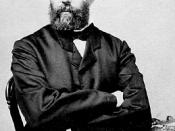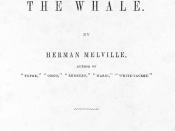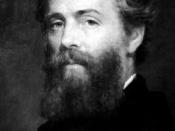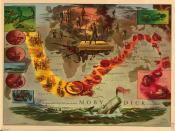Predestination Webster's Universal Dictionary portrays predestination as "The act by which God supposedly foreordained everything that would happen; destiny or fate." Melville uses predestination throughout this whole novel. The entire book is based on foreshadowing the Pequod's inevitable doom. For example, at the beginning of the novel, Father Mapple gives a sermon on Jonah and the whale. His story portrays the consequences for following your own plan rather than the will of God. Jonah did not want to go where God said; therefore, he was swallowed by a whale. This refers to Ahab; rather than following the purpose of the Pequod, he decides to accommodate himself and set out on another adventure. The consequence was a terrible fate for his ship and crew. Other events throughout the entire novel foreshadow the Pequod's inevitable fate. Therefore, when the Pequod finally meets its doom, it comes as no shock to the reader.
Predestination is believable because it is the result of several different events. It is the only realistic outcome resulting from more than one instance. For example, it was easy for the reader to understand and believe that a single whale destroyed an entire ship and its crew because Melville set the stage for it. He explained the conflict between the whale's super naturalness and the captain's monomania in depth throughout every chapter. It was almost as if the reader knew what was going to happen.
In my opinion, it seams that predestination is a major theme in Moby-Dick. Herman Melville foreshadowed every aspect of the book by means of nature, people, or even using Ishmael's thoughts. In doing this, he kept the reader interested in a story where they were almost certain of the outcome.






